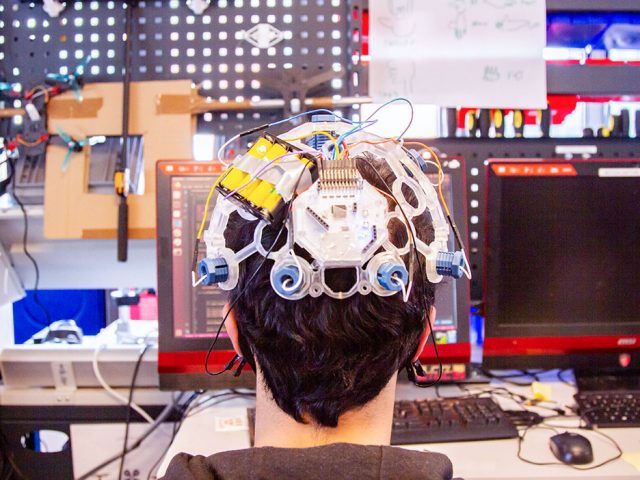
In the fast-paced world we live in today, prioritizing sleep often takes a back seat to our daily responsibilities. We’ve become a society that values burning the midnight oil, and in the process, we often overlook the profound impact that sleep has on our brain health. Sleep is not just a luxury; it is a fundamental necessity for the optimal functioning of our minds. In this article, we delve into the intricate relationship between sleep and brain health, shedding light on why getting quality shut-eye is paramount for a thriving cognitive life.
The Basics: Understanding Sleep
Before we dive into the profound effects of sleep on the brain, let’s start with the basics. Sleep is a natural, recurring state of rest for the body and mind, characterized by reduced awareness and responsiveness to external stimuli. It occurs in cycles, with each cycle consisting of several stages, including REM (Rapid Eye Movement) and NREM (Non-Rapid Eye Movement) sleep. These stages are not random; they serve specific purposes in ensuring our overall well-being.
Brain Detoxification: The Nightly Cleanup Crew
One of the most intriguing aspects of sleep is its role in brain detoxification. During the day, our brains are hard at work, processing information, forming memories, and managing various bodily functions. These processes generate waste products, including beta-amyloid, a protein associated with Alzheimer’s disease. When we sleep, the glymphatic system, a network of vessels in the brain, becomes highly active. It acts like a cleanup crew, flushing out these waste products, thereby reducing the risk of neurodegenerative diseases.
Memory Consolidation: The Power of Sleep
Have you ever wondered why a good night’s sleep helps you remember things better? It’s because of a process called memory consolidation. While we sleep, our brains replay and organize the experiences and information gathered throughout the day. This not only solidifies memories but also enhances problem-solving skills and creativity. Without adequate sleep, this crucial cognitive function is compromised, leaving us feeling mentally sluggish and forgetful.
Emotional Regulation: Balancing Act
Emotions and sleep are closely intertwined. A lack of sleep can lead to increased irritability, mood swings, and even exacerbate symptoms of anxiety and depression. Sleep plays a pivotal role in regulating emotional responses. It helps the brain process and categorize emotions, ensuring a balanced and stable mental state. For those battling mood disorders, prioritizing sleep is a key component of their treatment plan.
Cognitive Performance: Sharpening the Mind
If you’ve ever tried to focus on a complex task after a sleepless night, you’ve experienced firsthand how sleep impacts cognitive performance. Sleep deprivation impairs attention, decision-making, and problem-solving abilities. On the flip side, a well-rested brain is more alert, creative, and capable of tackling challenges with ease. It’s no wonder that successful individuals often credit their achievements to a good night’s sleep.

Tips for Optimal Sleep and Brain Health
Now that we understand the critical role sleep plays in brain health, let’s explore some practical tips to ensure you’re getting the restorative sleep your brain deserves:
- Establish a Routine: Go to bed and wake up at the same time every day, even on weekends. Consistency helps regulate your body’s internal clock.
- Create a Sleep-Conducive Environment: Make your bedroom a comfortable, dark, and quiet space. Invest in a comfortable mattress and pillows.
- Limit Screen Time: The blue light emitted by screens can interfere with your sleep-wake cycle. Avoid screens at least an hour before bedtime.
- Watch Your Diet: Avoid heavy meals, caffeine, and alcohol close to bedtime. These can disrupt your sleep patterns.
- Stay Active: Regular exercise can promote better sleep. Aim for at least 30 minutes of physical activity most days.
- Manage Stress: Practice relaxation techniques such as meditation, deep breathing, or yoga to manage stress, which can interfere with sleep.
- Seek Professional Help: If you’re struggling with chronic sleep issues, consult a healthcare professional for guidance and potential treatments.
Conclusion
In the grand scheme of things, sleep and brain health are inextricably linked. Neglecting sleep can have detrimental effects on cognitive function, emotional well-being, and overall quality of life. It’s high time we prioritize the restorative power of sleep and recognize it as a cornerstone of a healthy mind. So, the next time you contemplate staying up late to finish that project or binge-watching your favorite show, remember that a good night’s sleep is an investment in your brain’s long-term vitality. If you enjoyed this article about brain booster then visit their page for more interesting articles.
